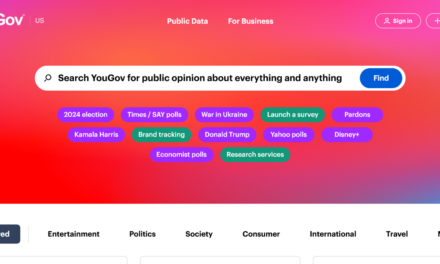1. What is Data Annotation?
Data Annotation is a company specializing in providing data labeling and annotation services to various clients, such as machine learning and artificial intelligence (AI) companies. Data annotation involves labeling data—such as images, videos, text, or audio—to train AI models. These labeled datasets are crucial for developing and improving AI algorithms that need to understand and interpret real-world data.
2. The Role of a Data Annotator: What Does the Job Entail?
As a data annotator at Data Annotation, your primary responsibility is to label data accurately. This can involve several tasks, including:
- Image Annotation: Tagging or drawing bounding boxes around objects in images to help machine learning models recognize and categorize those objects.
- Text Annotation: Labeling words or phrases in text data for natural language processing (NLP) purposes. This could include identifying entities like names, dates, and locations or categorizing text sentiment.
- Audio Annotation: Listening to audio files and transcribing or categorizing the content to help train speech recognition models.
- Video Annotation: Tagging frames in videos to identify movements, actions, or objects over time.
The role of a data annotator may sound simple, but it requires a high level of attention to detail and an understanding of the specific guidelines provided for each project. Annotators must ensure that data is labeled correctly to provide high-quality datasets for machine learning training.
3. Job Requirements: Who is the Ideal Candidate?
While data annotation might seem like a straightforward job, it requires a few specific skills and qualities. Here are the typical requirements for a data annotator position at Data Annotation:
- Attention to Detail: Since the quality of the data directly impacts AI training, annotators must be meticulous and precise.
- Basic Computer Skills: You should be comfortable using a computer, navigating websites, and using software tools for annotation.
- Good Communication Skills: Being able to follow instructions and communicate effectively with team members is essential.
- High-Speed Internet Connection: As a remote worker, you will need a reliable internet connection to access the data annotation platform and complete tasks.
- Time Management: Ability to manage time effectively and work independently to meet project deadlines.
- No Prior Experience Required: One of the attractive aspects of working with Data Annotation is that no prior experience is necessary. The company provides training and resources to help you get started.
4. Application Process: How to Apply for a Role at Data Annotation
Applying for a role at Data Annotation is relatively straightforward. Here’s a step-by-step guide to getting started:
- Visit the Application Page: Start by visiting the Data Annotation website and navigating to the “Careers” section.
- Fill Out the Application Form: Complete the online application form with your details, including your name, contact information, and any relevant experience.
- Submit a Sample Task: As part of the application process, you may be required to complete a sample annotation task. This helps the company assess your accuracy and attention to detail.
- Wait for a Response: If your application is successful, you will receive an email from the company with further instructions and an invitation to start the onboarding process.
5. Training and Onboarding: Getting Started with Data Annotation
Once you are accepted, Data Annotation provides training to help you understand the specific requirements and guidelines for their projects. The training typically covers:
- Platform Familiarization: Learning to navigate and use the annotation tools and platforms.
- Project-Specific Guidelines: Understanding the detailed guidelines for different projects, which could vary depending on the client’s needs.
- Quality Assurance (QA) Practices: Learning how to check your work for accuracy and adhere to quality standards.
6. Payment Structure: How Much Can You Earn?
One of the major attractions of Data Annotation is the promise of a competitive hourly wage. Here’s a breakdown of how the payment works:
- Hourly Rate: The company advertises a pay rate of $20 per hour or more. However, this rate may vary depending on the complexity of the task, the client, and your performance.
- Pay Frequency: Payments are usually made weekly or bi-weekly via direct deposit or other payment methods, such as PayPal.
- Performance-Based Incentives: Annotators may receive bonuses or higher pay rates for consistently high-quality work or completing tasks ahead of schedule.
- Payment Transparency: Ensure to read through the contract or agreement carefully to understand how and when you will be paid, as well as any conditions that may affect your earnings.
7. Pros of Working at Data Annotation
1. Flexible Work Schedule
Data Annotation allows you to work from home with a flexible schedule. You can choose when to log in and complete tasks, making it ideal for those with other commitments or looking to balance work with personal life.
2. Decent Pay Rate
At $20 per hour or more, the pay rate at Data Annotation is competitive compared to other entry-level remote jobs. The potential for performance-based incentives is an added bonus.
3. No Prior Experience Required
You do not need to have previous experience in data annotation to start working with Data Annotation. The company provides all the training needed to help you get up to speed.
4. Opportunity to Learn and Grow
Working as a data annotator provides a unique opportunity to learn about the growing fields of AI and machine learning. You gain insight into how these technologies work and the important role data plays in their development.
8. Cons of Working at Data Annotation
1. Repetitive Work
Data annotation can be repetitive and tedious, especially when working on large datasets for extended periods. This may not be ideal for those who prefer dynamic or creative work environments.
2. High Attention to Detail Required
The role demands a high level of accuracy and attention to detail, which can be mentally exhausting over time. Errors in labeling can lead to quality control issues and affect your performance ratings.
3. Limited Advancement Opportunities
Data annotation is often seen as an entry-level position with limited opportunities for career advancement. While there is a potential to earn bonuses or take on more complex tasks, growth beyond the annotation role may be restricted.
4. Earnings Can Be Uncertain
While the company promises a rate of $20 per hour or more, actual earnings may vary depending on task availability, performance, and client requirements. Some annotators may experience fluctuations in their workload and pay.
9. Is Data Annotation a Good Fit for You?
Determining whether Data Annotation is the right fit for you depends on your individual circumstances and career goals. Here are a few factors to consider:
- Flexibility Needs: If you need a job with a flexible schedule that you can do from home, Data Annotation is a good option.
- Income Expectations: The advertised rate is competitive, but you should be prepared for potential variations in earnings.
- Interest in AI and Machine Learning: If you have an interest in these fields, data annotation can be a way to gain relevant experience and understanding.
- Comfort with Repetitive Tasks: Be aware that the role can be repetitive and requires a lot of focus and concentration.
10. How to Maximize Your Earnings at Data Annotation
Here are some tips to help you earn more as a data annotator:
- Focus on Quality: Aim for high accuracy in your annotations to avoid corrections and increase your chances of earning bonuses.
- Manage Your Time Effectively: Set a daily target for the number of tasks you want to complete and stick to it.
- Stay Updated: Keep up with any changes in guidelines or tools provided by the company to maintain efficiency.
- Look for Performance Incentives: Take advantage of any bonuses or incentives offered by the company for completing tasks early or maintaining high-quality standards.
Final Thoughts: Should You Apply to Data Annotation?
Data Annotation offers a legitimate work-from-home opportunity with a flexible schedule and competitive pay rate. While the job has its pros and cons, it can be an excellent fit for those looking to work remotely, especially if you have strong attention to detail and don’t mind repetitive tasks. If this sounds like you, consider giving Data Annotation a try!
Apply Now
To apply for a remote data annotator position with Data Annotation, visit their Careers Page.






0 Comments